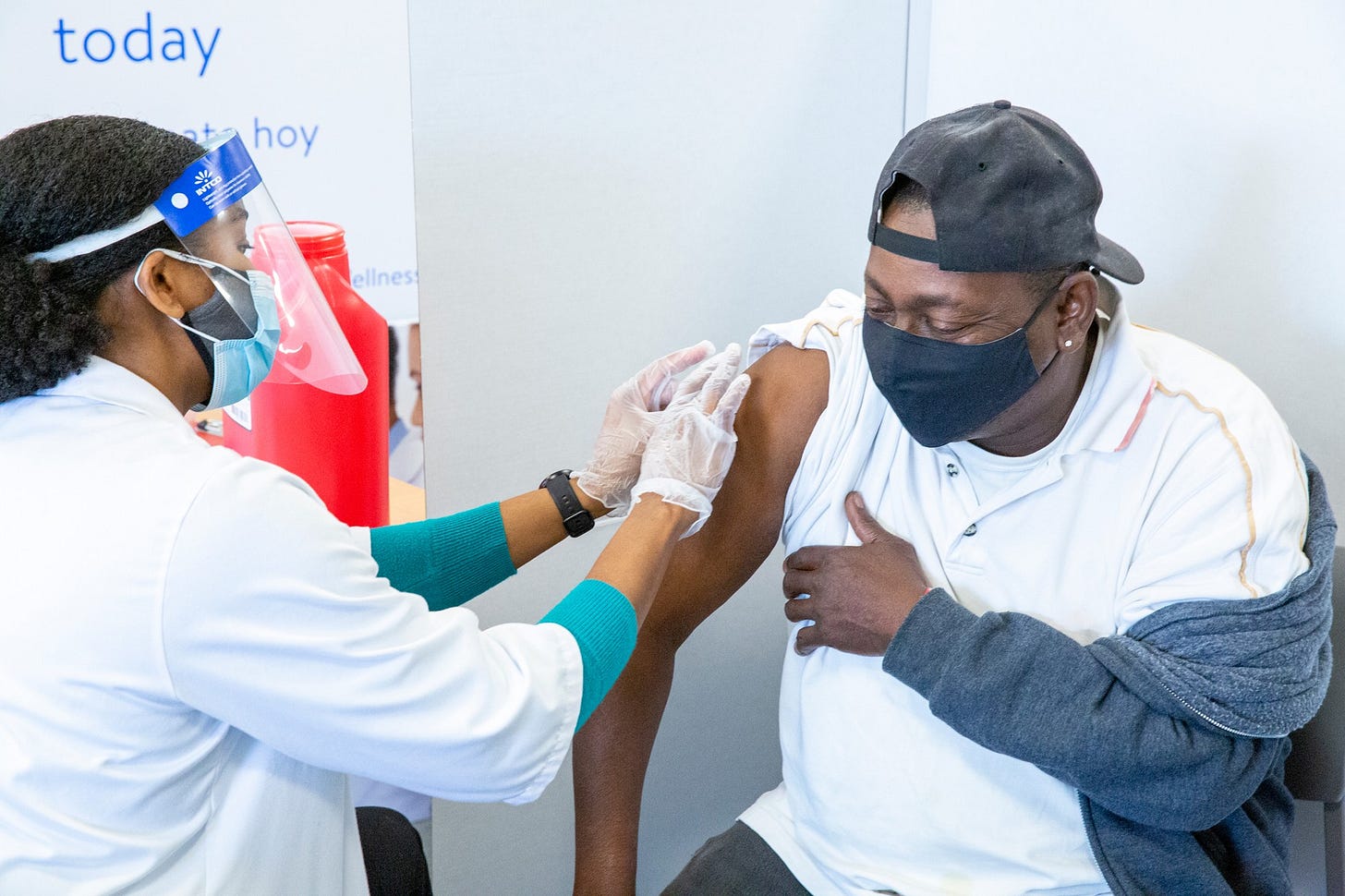Is it possible to bridge the moral divide about vaccinations?
How one organization bucked the trend of institutional distrust.
In early 2021, we at the Network Contagion Research Institute (NCRI) published a report about the problem of institutional distrust. As we wrote:
Conspiracy theories are a method of grappling with uncertainty. They represent an explanatory framework that works to make sense of a world that, to the conspiracy theorist, is chaotic and threatening. Especially when things seem out of control, it is easier to accuse evildoers of secretly controlling the world than it is to accept that bad things happen for complex and sometimes unknown reasons. Given that a pandemic represents a threat to life and well-being, and the government’s responses to it can be experienced as both chaotic and a threat to liberty, it is unsurprising that conspiracy theories about the pandemic and responses to it have proliferated.
While it’s easy to mock conspiracy theorists, their distrust of institutions was not entirely baseless. Dr. Anthony Fauci admitted that he had been less than transparent about his true views on herd immunity. Double standards for public health restrictions gave the political Left exemptions for large gatherings not offered for causes and activities preferred by the Right. Legacy media outlets failed to report information (such as the “lab-leak hypothesis”) that contradicted the official narrative. Social media censors targeted speech seen as offensive to those on the Left but not the Right. And mass social media deplatforming sent many on the Right to darker corners of the web.
The final indignity for some was the government vaccine mandate, whose message is that the government doesn’t trust individuals to voluntarily make good decisions. It is no wonder, then, that in 2020 and 2021, the share of the U.S. population who reported trusting the government “always” or “most of the time” was under 25%, and almost 44% reported not trusting journalists much or at all. When people come to believe that their institutions don’t trust them, they lose trust in those institutions.
And yet, one vaccine provider has over-performed in communities with high levels of hesitancy. Click on the link for more in my latest article for Psychology Today, co-written with psychiatrist and retired U.S. Army Brigadier General Loree Sutton.
The Tragedy in Ukraine
Given that I have no expertise in international affairs, I will not be writing about Ukraine. I highly recommend Bret Stephens for insightful and elucidating columns about the situation. You can read his latest, even without a subscription, by clicking here.
More to come…


